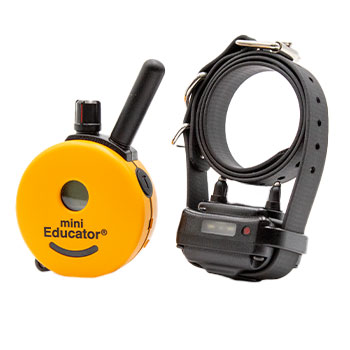How Allergies Affect Dogs and Other Pets
What are Allergies?
An allergy is simply a reaction. It is the body's intense reaction to a substance called an allergen that can be inhaled through the lungs, ingested through the mouth, or absorbed by the skin. Often, when these substances are eliminated, symptoms do seem to decrease. Pets exhibit their distress by scratching and biting their bodies, by their digestive upsets, by their bad body odor, by their poor coats, and by their difficulty in breathing and/or anxieties.

Many pet owners feel frustrated because they treat allergies year after year. Yet, there is little long-term relief, and as time passes the symptoms generally get worse. Owners will try almost anything. They will eliminate the supposed substance that is causing the trouble. They will search for the next medication or dietary change that might work, but usually, with each passing season, the animal becomes weaker, the medications become less effective, and the diets prove to be a waste of money. It's an endless, desperate battle.
Allergies are common when the body is not cared for as nature intended. As time passes, the pet's immune system gets weaker, placing additional stress on the body's other systems until the whole body breaks down. It is, therefore, not uncommon to see the more serious diseases, such as cancer, in older animals with a history of allergies.
We believe that many allergies are simply an indication of an imbalance in the immune system, not a true sensitivity to one substance. I have found that fewer than 20% of animals with suspected allergies have been diagnosed correctly and that the remaining 80% are fighting a depressed immune system and an unbalanced diet.
Allergies in the Pet's Body
Allopathic veterinary medicine, our country's standard medical care, does not yet fully understand how the immune system works. It lumps symptoms under a general diagnosis and tries to suppress them, rather than treating the whole body.
Here's a short scenario on how the pet's body works during an allergic reaction: The body is constantly being confronted with dangerous substances from the environment such as pesticides in the house, the commercial pet food they eat that contain animal byproducts, and waste products built up in the body. The whole digestive system begins to suffer. The skin, the largest eliminatory organ, then takes on the challenge of releasing the waste. This results in pimples, rashes, hot spots, or a lowered general resistance. Urea, a waste product of protein digestion, promotes a gout-like condition, resulting in foot-chewing and licking.
Alleviating Allergic Reactions
Steroids, commonly used to reduce inflammation will temporarily reduce the symptoms. The explanation is simple; the steroid will reduce the symptoms by reducing the reaction to a toxin but will not tackle the underlying problem: a depressed immune system. You can imagine that the pet will not get better in the long run, and most probably will get worse.
To strengthen the immune system, it's necessary to cleanse the body of toxins. In my experience supplements and homeopathic or herbal remedies will help to assure that the fundamental imbalance is corrected. It will also help to maintain the balance of your pet's blood sugar and hormones to feed your pet at least twice a day and sometimes more if needed in order to keep the blood sugar more stable. Do provide proper grooming and an emotionally stable environment. You will find that this regime will foster a strong immune system and the allergies will disappear.
The best defense for an allergic pet is a strong offense. The first step is to get a proper diagnosis from your veterinarian to ensure that you are not dealing with a serious illness. Whatever the problem, serious or minor, there are many natural protocols you can successfully follow.
Above all, do not give up prematurely. There are no magic bullets. You will have to remind yourself frequently that the more compromised an animal's health is, and the longer it's suffering, the longer it may take to rebalance its body, but it is possible.
The best place to start eliminating the aftereffects of allergies caused by vaccinations is to feed a raw, all-natural diet. Read the extensive Raw Diet FAQ for more information.












Ask Cindy.